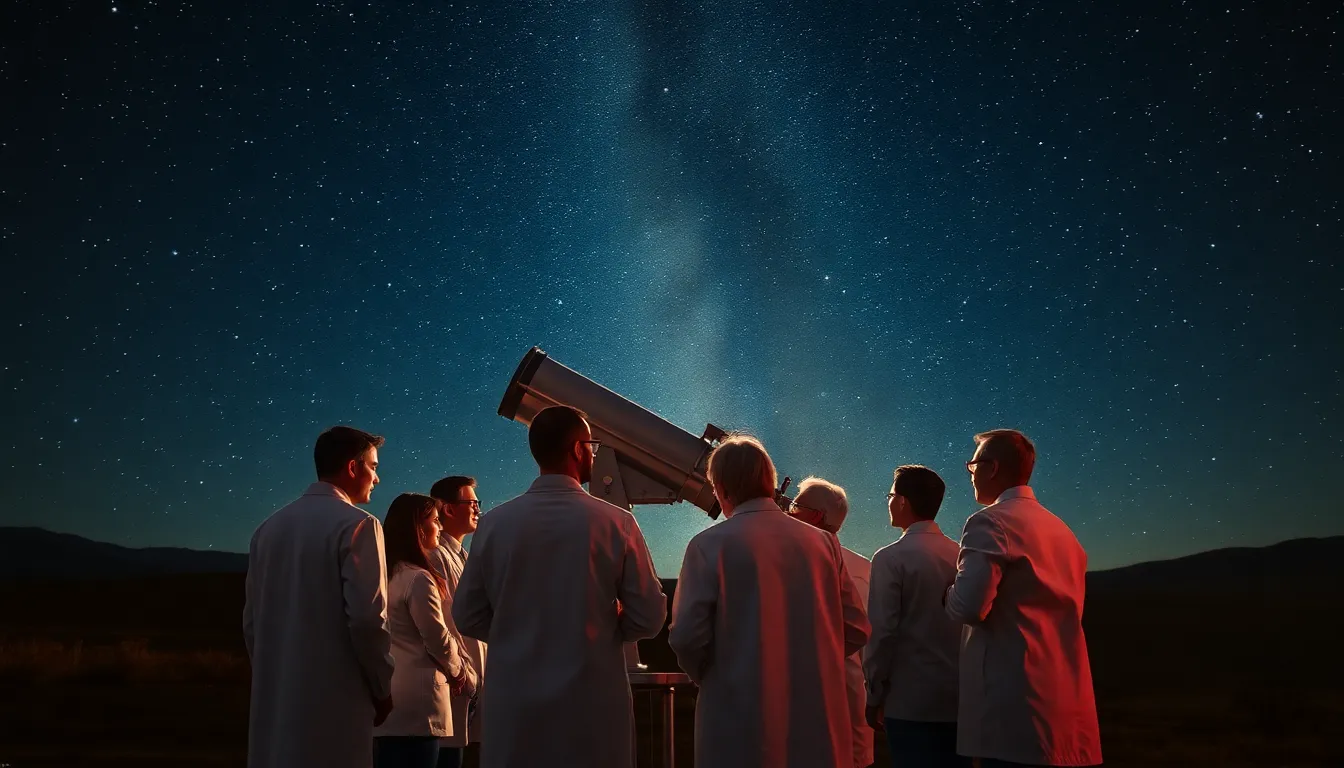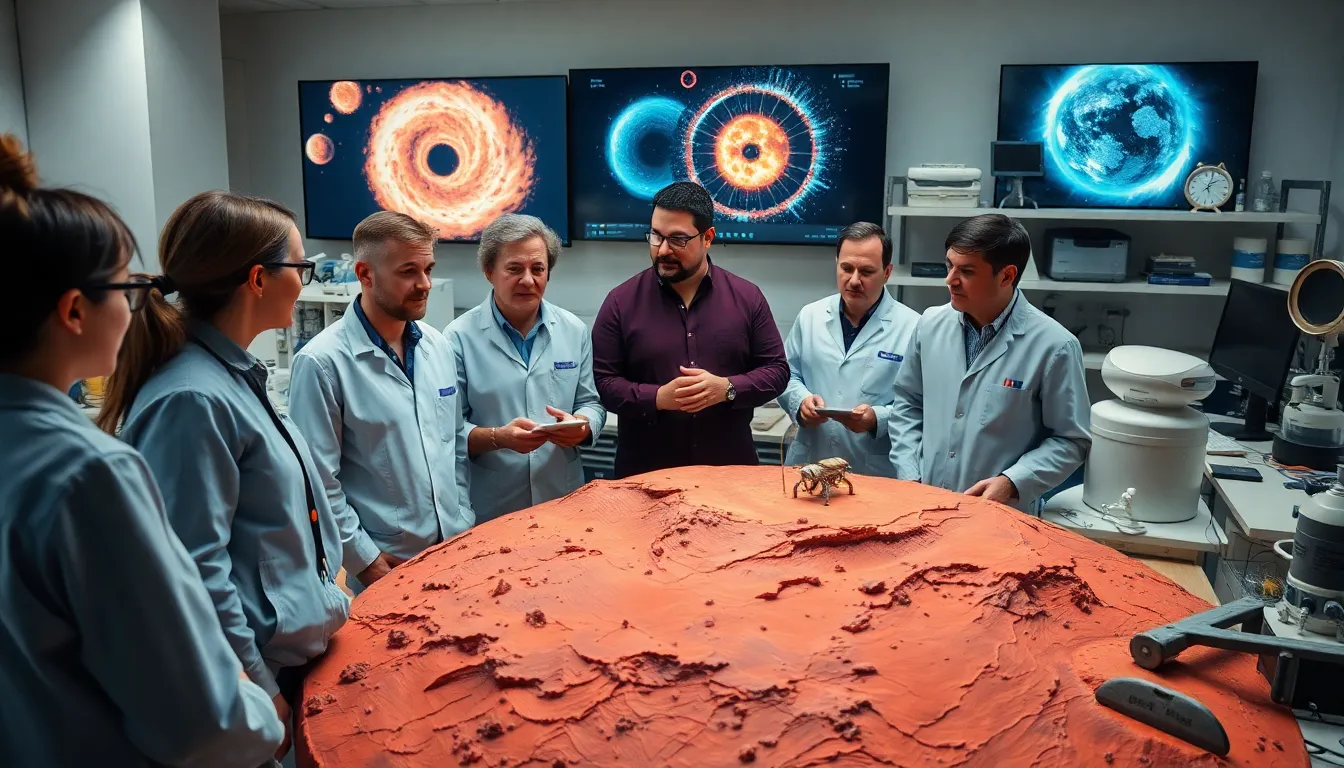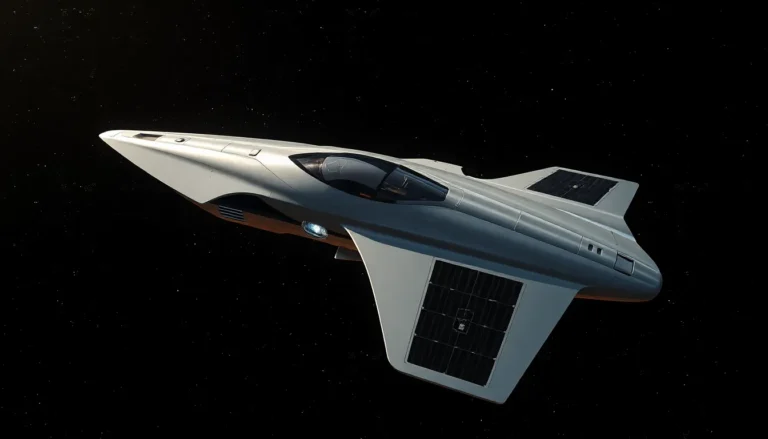Table of Contents
ToggleOuter space research isn’t just for astronauts and sci-fi enthusiasts anymore. It’s a thrilling frontier that holds the secrets of the universe, and it’s time to buckle up for a cosmic ride! From uncovering the mysteries of black holes to finding out if aliens really do exist (spoiler alert: they might), the quest for knowledge beyond our blue planet is more exciting than ever.
Overview of Outer Space Research
Outer space research encompasses a broad range of scientific disciplines, including astronomy, astrophysics, and planetary science. Scientists examine celestial bodies like stars, planets, and galaxies to understand their composition and behavior. The study of black holes represents a significant area of interest, revealing insights about gravity and the fabric of the universe.
Mars exploration exemplifies recent advancements in outer space research. Missions like NASA’s Perseverance rover and the Mars Helicopter Ingenuity provide valuable data about the planet’s atmosphere, geology, and potential for life. Research teams analyze samples and conduct experiments to identify signs of past microbial life.
Satellite technology plays a crucial role in outer space research. These devices gather data on Earth’s climate, weather patterns, and natural disasters. Remote sensing capabilities and data gathered from satellites enable scientists to track changes in environmental conditions effectively.
International collaboration amplifies the impact of outer space research. Space agencies like NASA, ESA (European Space Agency), and Roscosmos (Russian Federal Space Agency) join forces on missions to enhance understanding of the cosmos. Collaborative projects lead to shared knowledge, technology, and resources, accelerating discovery and innovation.
Private companies now contribute significantly to outer space research as well. Organizations such as SpaceX and Blue Origin focus on reducing launch costs and increasing access to space. Their advancements in rocket technology pave the way for a new era of exploration and commercial opportunities beyond Earth.
Outer space research fosters a deeper understanding of the universe, emphasizing collaboration among various organizations and advancements in technology. The continued pursuit of knowledge holds the promise of uncovering secrets lying far beyond the confines of Earth.
Key Areas of Outer Space Research

Outer space research spans several critical fields, each contributing unique insights into the universe. These areas include astrobiology, cosmology, and planetary science.
Astrobiology
Astrobiology examines the potential for life beyond Earth. Researchers focus on extreme environments on Earth to understand how life might exist on planets like Mars or moons such as Europa. This discipline utilizes advanced telescopes and satellites to detect signs of habitability on exoplanets. By studying meteorites and comets, scientists analyze organic compounds that can provide clues about the origins of life in the universe. With ongoing missions to search for biosignatures, astrobiology aims to answer the profound question of whether humanity is alone.
Cosmology
Cosmology investigates the universe’s structure, origin, and the fundamental laws governing its evolution. Scientists study cosmic microwave background radiation to understand the Big Bang and the universe’s expansion. Dark energy and dark matter form key focus areas, as they account for most of the universe’s composition. Observational tools, such as the Hubble Space Telescope, enable researchers to gather data on distant galaxies. This field aims to explain large-scale phenomena, refining our understanding of the cosmos.
Planetary Science
Planetary science explores the formation and evolution of celestial bodies within the solar system and beyond. This field encompasses the study of planets, moons, asteroids, and comets, providing insights into their geology, atmospheres, and potential for supporting life. Missions like NASA’s Perseverance rover offer detailed analysis of Martian soil and climate. Researchers also investigate the geological processes shaping planetary features, enhancing knowledge of how terrestrial planets evolve. By comparing different worlds, planetary science reveals the diversity of planetary systems throughout the cosmos.
Technologies Used in Outer Space Research
Outer space research relies on various advanced technologies that enhance our understanding of the cosmos.
Telescopes and Satellites
Telescopes gather light from distant celestial objects, enabling astronomers to observe stars, galaxies, and other phenomena. Various types of telescopes, including optical and radio telescopes, play a critical role in collecting data and making discoveries. Satellites orbit Earth, providing vital information about the planet’s atmosphere, weather patterns, and climate change. Instruments aboard these satellites monitor environmental shifts and help scientists track the effects of human activity. This continuous flow of data allows researchers to compare terrestrial phenomena with cosmic trends, leading to a comprehensive understanding of both Earth and outer space.
Space Probes and Rovers
Space probes venture beyond Earth’s orbit to collect data from other celestial bodies. These unmanned vehicles travel vast distances, providing insights into the composition, atmosphere, and conditions of planets and moons. Rovers, designed to traverse planetary surfaces, carry instruments that analyze soil and rock samples directly. NASA’s Perseverance rover explores Mars, examining the planet’s geology and searching for potential signs of ancient life. Such missions contribute to the broader knowledge of extraterrestrial environments and drive advancements in technologies used for exploration. Engaging in these efforts, scientists prepare for future missions that expand our reach into the universe.
Challenges in Outer Space Research
Outer space research presents multiple challenges that impact its advancement and effectiveness.
Funding and Resource Allocation
Securing adequate funding proves difficult for many space missions. Government budgets often prioritize immediate domestic issues over long-term space exploration. Space agencies like NASA and ESA consistently seek increased financial support to maintain ongoing projects. Private companies also play a crucial role, yet their investments can fluctuate based on market conditions. Moreover, competition for limited resources complicates collaboration between organizations. Unforeseen expenses can arise during missions, leading to budget constraints that hinder scientific progress and mission success. Prioritizing projects becomes essential for effective resource management within the aerospace industry.
Environmental and Ethical Concerns
Environmental and ethical issues significantly influence outer space research. Concerns about space debris threaten the safety of satellites and spacecraft in Earth’s orbit. Accumulating waste affects not only space missions but also the sustainability of future exploration. Additionally, the potential contamination of celestial bodies raises ethical questions regarding planetary protection. Ensuring that extraterrestrial environments remain intact becomes increasingly critical as exploration efforts expand. Scientists must balance advancing knowledge with protecting both Earth and outer space environments. Addressing these challenges requires international cooperation and comprehensive regulatory frameworks to ensure responsible exploration.
Future of Outer Space Research
Advancements in outer space research promise transformative changes in humanity’s understanding of the universe. Upcoming missions target Mars exploration, asserting a commitment to uncovering its secrets. The Artemis program focuses on returning humans to the Moon, acting as a precursor for future missions to Mars. This initiative emphasizes sustainable lunar exploration, utilizing resources in space instead of relying solely on Earth.
Private sector involvement grows, significantly impacting research opportunities. Companies like SpaceX and Blue Origin drive innovation and reduce the costs of launching payloads into orbit. Increased access enables more frequent missions and diverse collaborative projects, enhancing discoveries across various fields.
Researchers continue to enhance capabilities through emerging technologies. Artificial intelligence plays a critical role in analyzing vast amounts of data collected from celestial bodies. Enhanced machine learning algorithms significantly improve object detection and analysis, streamlining the process of identifying potential biosignatures and other valuable information.
International cooperation evolves further as nations align goals and share resources. Collaborative missions, such as those between NASA and ESA, capitalize on shared expertise to maximize scientific outcomes. New agreements facilitate resource sharing and technology transfers, fostering a spirit of unity in exploring outer space.
Ethics and sustainability remain high priorities for the future. Addressing the growing issue of space debris requires innovative solutions and responsible practices in mission planning. Defining regulatory frameworks ensures that exploration activities minimize environmental impact while promoting scientific enrichment.
Collectively, these developments indicate a bright future for outer space research, emphasizing exploration’s collaborative, innovative, and responsible nature. Interest in the cosmos continues to inspire new generations, fueling a quest for knowledge that transcends borders and cultures.
Outer space research stands at the forefront of human curiosity and innovation. With advancements in technology and international collaboration, the quest to understand the universe is more exciting than ever. As private companies and space agencies work together, they’re unlocking new possibilities for exploration and discovery.
The ongoing pursuit of knowledge about black holes, Mars, and the potential for extraterrestrial life continues to inspire a sense of wonder. Ethical considerations and sustainability will play a crucial role in shaping the future of space exploration. This collective effort not only deepens our understanding of the cosmos but also fosters a spirit of unity among nations.
As humanity looks to the stars, the journey into outer space promises to unveil secrets that could redefine existence itself. The adventure has just begun, and the universe awaits.







